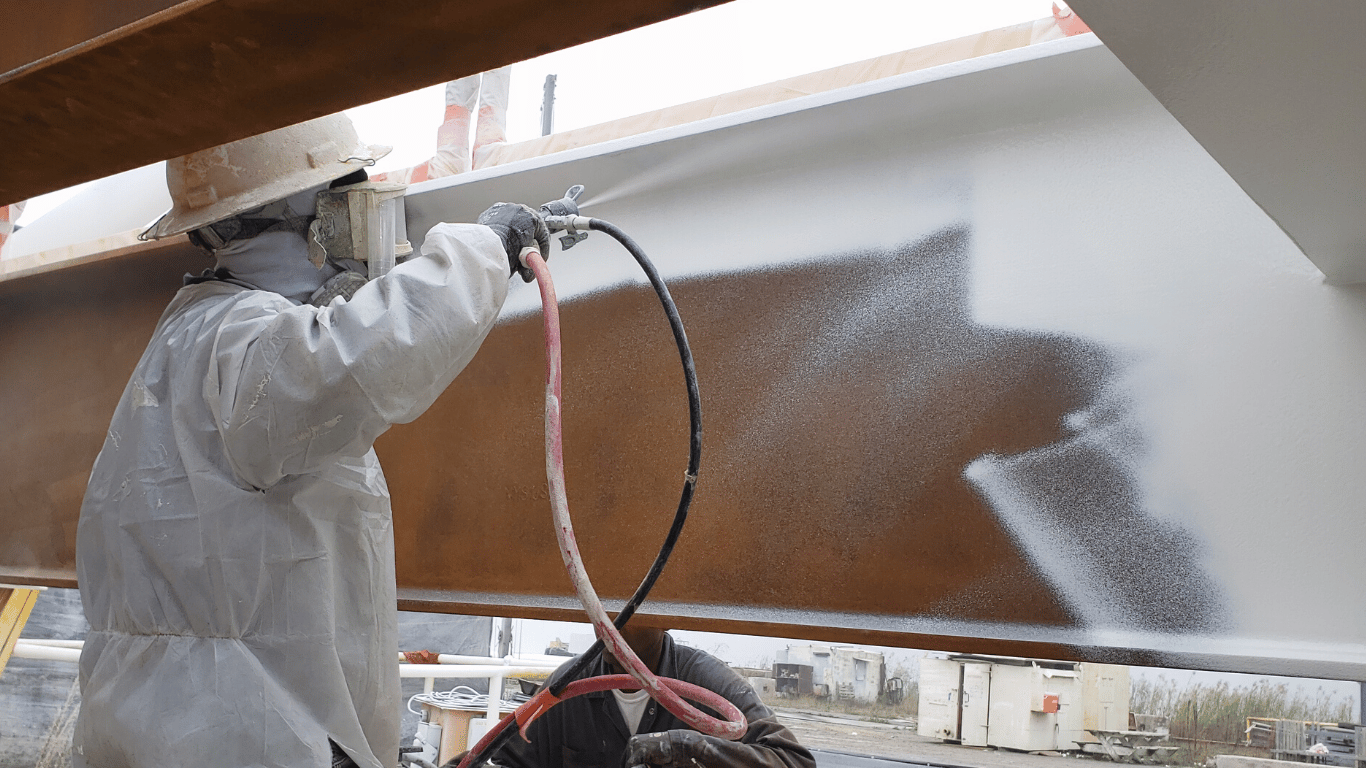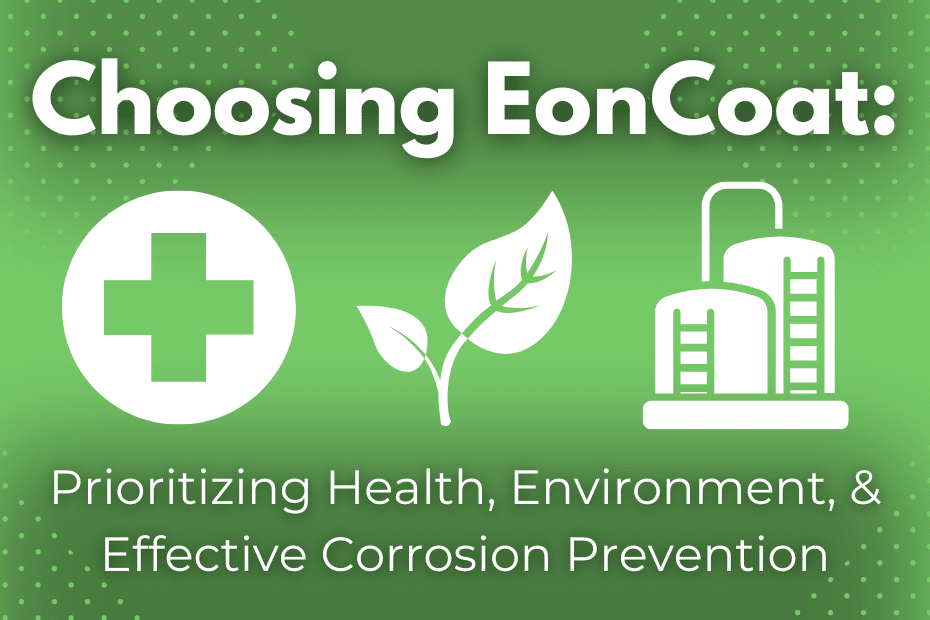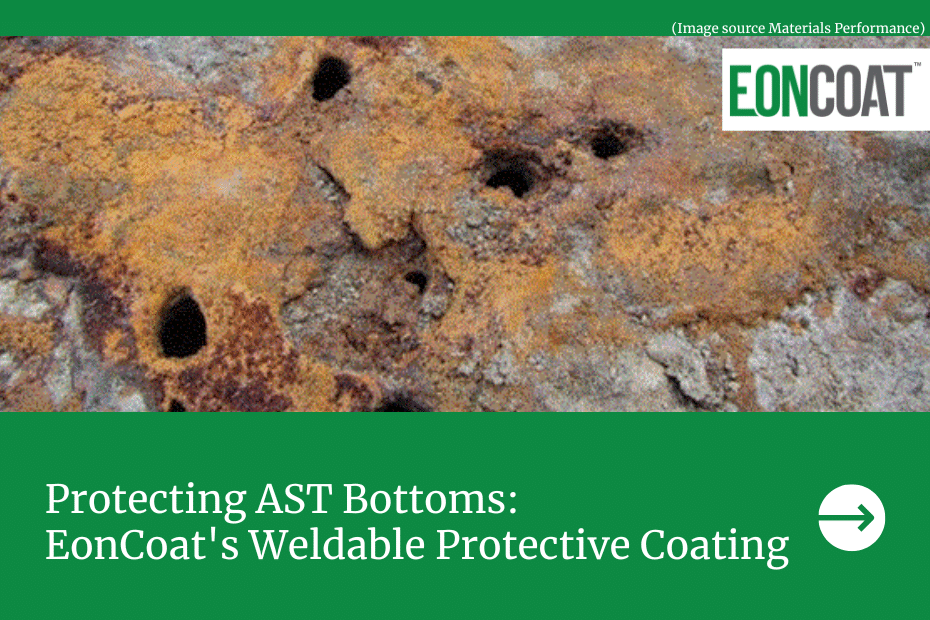Concrete is a unique substrate in that it continues to harden for years. Additional water is released as this process continues, making it challenging to protect the concrete from the elements since you must leave a way for the water vapor to escape while keeping corrosion promoters from the surface.
EonCoat performs this task nicely by bonding chemically to concrete and preventing water intrusion while allowing internal water vapor to escape.
We’ve all seen polymer coatings peel off in sheets as a result of their mechanical bond. EonCoat’s chemical bond enables the coating to hold tight because it is a part of the concrete substrate. It cannot peel off once it’s actually part of the substrate.
EonCoat Slows Carbonation by Creating a Barrier Stopping CO2 from Reacting with the Calcium in Concrete
An EonCoat coating slows the carbonation that occurs on the surface of the concrete. Carbonation lowers its pH from the outside in and eventually leads to the failure of rebar because the pH of the concrete must stay above 9 to keep rebar in the passivation range of steel. Carbonation occurs because concrete reacts with CO2 that’s in the air. The CO2 reacts with the calcium in concrete to form calcite. The pH of calcite is around 8.4, lower than the necessary 9.
The progress of carbonation deeper into concrete is proportional to the square root of time. The progress into concrete can be from 1 to 5 mm in one year depending upon the density of the concrete. By creating a barrier to CO2 carbonation is slowed or eliminated.
Concrete spalling is generally the result of rebar corrosion but can also be caused by freeze/thaw effects that lift layers of concrete. EonCoat stops, or at least reduces, both:
- Rebar corrosion is reduced because carbonation is slowed.
- Freeze/thaw is reduced because water doesn’t penetrate the hard, tight matrix of the ceramic.
EonCoat also reduces the abrasive wear of concrete because EonCoat is much harder and more abrasion-resistant than concrete alone. To learn more, read our blog post about our improved abrasion resistance.

Ready to Learn More About EonCoat?


